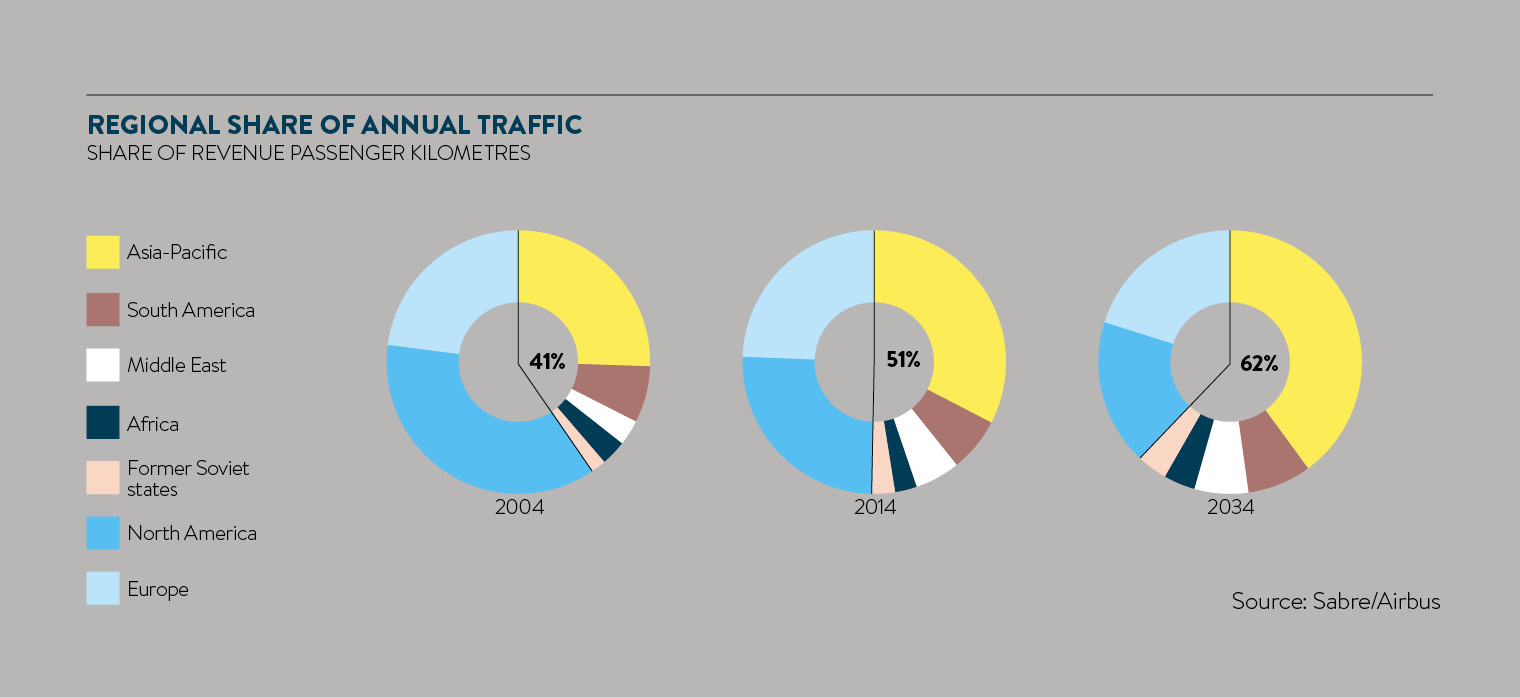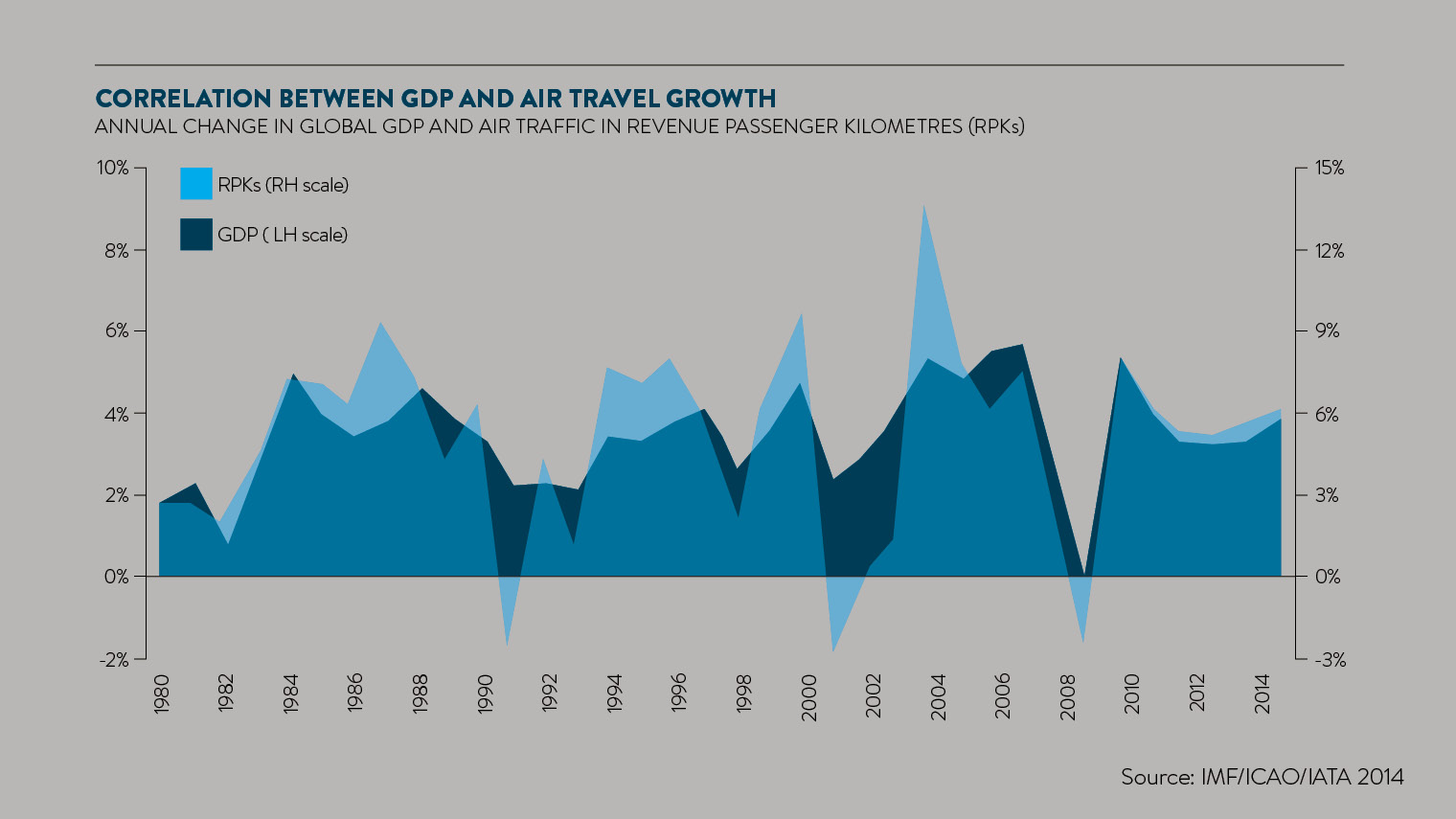“If it wasn’t for the low-cost airline route networks, our business would be limited to operating provincially,” says Ted McMullen, managing director of McMullen Facades, part of Lakesmere Group.
The routes are indispensable conduits for the skilled workforce that flies in from Poland, and for accessing supply chains in Spain and Germany
His company designs, manufactures and installs cladding for some of the UK’s next generation of high-profile architectural landmarks, including the Canary Wharf Crossrail Development and Manchester’s National Graphene Institute.
“Our relationship with easyJet streamlines our team’s journey through the airport,” says Mr McMullen, referring to fast-track security arrangements and dedicated bag-drop desks the airline offers via its Plus Card.
But bypassing the choke-points and hubbub of a busy terminal is just one reason the airline features prominently in Mr McMullen’s logistics strategy. The main incentives are easyJet’s route network and price point, enabling the building specialist’s project leadership teams from its headquarters in Northern Ireland to commute to construction sites on the UK mainland.

The routes are also indispensable conduits for the skilled workforce that flies in from Poland, and for accessing supply chains in Spain and Germany. It’s a matrix of route connectivity that underpins the business’s viability.
On the flip-side of that business-airline interface, Anthony Drury, director and head of business at easyJet, says that over a fifth of easyJet passengers are travelling for business purposes – that’s more than 12 million people and over 95 per cent of them are repeat customers.
“We’ve actively been targeting business travellers for many years now; this is not new to us. We first went on to the global distribution systems used by business travel agents in 2007 and have successfully grown our share of the managed corporate travel sector,” says Mr Drury, referencing the reach of the carrier’s route network. “We fly to more primary airports on the top 100 European routes than any other carrier and our on-time performance is one of the best in the industry.”
Economic diversity
This symbiosis between businesses and the airline networks they rely upon to access customers and extend geographic footprint is prevalent not just in countless UK businesses, but also across the UK’s numerous clusters of local business communities and associations that help amplify their members’ voices at a more global level.
Located in the heart of southern England with Gatwick Airport at its centre, one such body is Gatwick Diamond, so called due to the shape of its geographic borders. It encompasses more than 500 international businesses, including the UK headquarters of Unilever, Canon, Nestlé, Thales and Novartis, fostering inter-trading opportunities for its members, encouraging inward investment and promoting links throughout the UK, Europe and beyond.

“One of my mantras is that an airport brings economic diversity,” says Gatwick Diamond’s chief executive Jeremy Taylor. “While Gatwick is known as a leisure airport, 20 per cent of its traffic is business travel. And just because a destination has a good climate, it doesn’t mean there isn’t a good business opportunity there.” Companies within Gatwick Diamond’s ambit may favour the proximity of their local airport and seek its continuing expansion. However, as Mr Taylor points out: “We have Gatwick Airport on our doorstep, but when the traffic’s right we also have Heathrow on our doorstep and by having several airports with capacity, you get more resilience in the connectivity network.”
One of the firms operating within the Gatwick Diamond community is Time 24, a manufacturer of electromechanical assemblies, control panels and wiring harnesses for rail carriages, aircraft simulators and radiotherapy machines, based in Burgess Hill, West Sussex. Time 24’s logistics matrix relies on skilled manufacturing capabilities in the Czech Republic, accessed via the route network of Ryanair which, in addition to catering for the leisure traveller, flies to some of Europe’s lower-cost industrial zones, remote from the more conventionally attractive tourist hubs.
This has been a game-changer for Time 24. “Ryanair is providing competitive links into the heartland of Czech industry,” enthuses the firm’s managing director David Shore. “We are achieving excellent business growth with a model that combines our UK site providing value-added manufactured systems, supported by our Czech facility providing quality assembly work at a third of the labour costs of the UK. Being able to fly there and back to industrial centres such as Brno and Ostrava for less than £80 is invaluable.”
Attempting new routes
Established companies benefitting from the ubiquitous route networks of low-cost carriers is a compelling business model, but what happens when a legacy carrier considers testing an entirely new route and what kind of opportunities does that present to smaller, less entrenched businesses?
Last year, United Airlines decided to inaugurate service from Newcastle International to New York’s Newark Airport, initially running a spring-autumn season from May until September.
To reach international markets, the North East relies heavily upon air travel for connectivity. As David Laws, chief executive at Newcastle International Airport, explains: “The United States is a major market for North-East exports and imports, so we have been seeking a US route for a number of years. The route started last year and there was good demand from businesses in the region, and we were delighted by their response to this service.”

Mr Laws hopes that United’s testing of the waters will emulate the success of a previous initiative that Emirates took when it launched a Newcastle-Dubai service a few years back. “The Emirates route has been hugely successful in opening up business opportunities to the East via the Dubai hub and we expect United’s New York route to be a similar catalyst to the West,” he says. “When Emirates first arrived in the region in 2007, flown exports from the airport stood at around £20 million. Since then, the value of exports flown from the airport is £310 million, mostly generated via the Emirates service, which highlights the transformational effect a single long-haul scheduled service can have.”
For one particular startup in the region, the Newcastle-New York route presented a unique opportunity. A group of University of Glasgow and Strathclyde University graduates formed a company called MindMate, which defines itself as “the fastest-growing platform in the $818-billion Alzheimer’s industry”. With funding from Ignite Incubator, the UK’s startup accelerator network, MindMate was part of a mission comprising nine UK startups that were flown by Ignite on a trip using United Airlines’ new route. The objective of the trip was to prepare MindMate and other startup companies for US market entry. While there, MindMate also participated in mentoring sessions and demonstrated their family of apps to Microsoft and Foursquare.
MindMate co-founder and managing director Patrick Renner recalls: “During the mentoring session with Microsoft, we met one of our business advisers who is currently helping us with our expansion strategy in the US. We’re going to travel to New York again very soon and this becomes a lot easier when you have the opportunity to get a direct flight from Newcastle.”
That’s a sentiment endorsed by Newcastle International Airport’s Mr Laws, who says: “The United Airlines service to New York was a route we were determined to deliver for the North East. We have been very pleased with the way in which the operation has performed, and with the response of the individuals and businesses who have taken advantage of the service. In the past few weeks, many people have been asking us whether the service will return in 2016, so I am delighted to be able to confirm that it will be back.” United’s Newcastle to New York Newark service will run a second season this year, six times weekly, starting in late-May.
“If it wasn’t for the low-cost airline route networks, our business would be limited to operating provincially,” says Ted McMullen, managing director of McMullen Facades, part of Lakesmere Group.
His company designs, manufactures and installs cladding for some of the UK’s next generation of high-profile architectural landmarks, including the Canary Wharf Crossrail Development and Manchester’s National Graphene Institute.
“Our relationship with easyJet streamlines our team’s journey through the airport,” says Mr McMullen, referring to fast-track security arrangements and dedicated bag-drop desks the airline offers via its Plus Card.
